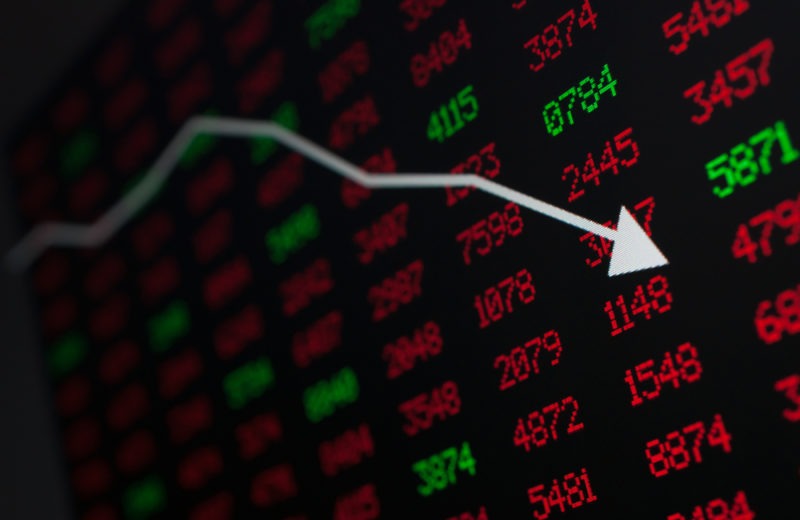Asian markets experienced a mixed trading session on Wednesday as concerns over the stability of the U.S. banking sector triggered a downturn on Wall Street. Moreover, apprehensions about China’s biggest stock losers today compounded market unease.
Market Performance Across Key Asian Economies
In Japan, the Nikkei 225 declined by 0.2%, settling at 32,323.31 during morning trading. Australia’s S&P/ASX 200 showed minimal movement, inching up by less than 0.1% to reach 7,316.60. South Korea’s Kospi performed better, adding almost 1.0% to reach 2,598.96. Hong Kong’s Hang Seng faced a decline of 0.4% to reach 19,105.19, while the Shanghai Composite also lost 0.4% to reach 3,247.64.
Expert Insights on China’s Export Data and Global Economic Trends
Notable economist Clifford Bennett from ACY Securities remarked on China’s export data, describing it as “rather alarming.” The data revealed the sharpest decline in three years, raising concerns about the global economy’s trajectory and highlighting the interdependence of major economies like the U.S., China, and the EU. Bennett emphasized the potential intensification of the ongoing global economic slowdown.
Wall Street Performance: S&P 500 and Dow Jones Slide
Wall Street encountered another downturn as the S&P 500 declined by 0.4%, amounting to a loss of 19.06 points, closing at 4,499.38. At one point, the index faced nearly three times that loss. Meanwhile, the Dow Jones Industrial Average dropped 0.4% or 158.64 points, concluding at 35,314.49 after trimming an earlier loss of 465 points. The Nasdaq Composite also experienced a decline of 0.8%, shedding 110.07 points to close at 13,884.32.
U.S. Banking Concerns Drive Stock Market Volatility
Moody’s downgrading of credit ratings for 10 smaller and midsize U.S. banks created ripples in the market. This action reflected concerns about the banks’ financial strength, exacerbated by factors like higher interest rates and the work-from-home trend impacting office occupancy rates.
Federal Reserve and Inflation Outlook: Implications for Interest Rates
The Federal Reserve’s recent rate hikes, in an attempt to curb inflation, have significantly affected various sectors, particularly banks. Moody’s highlighted the adverse impact of rapid rate hikes on banks’ profits and raised concerns about banks holding commercial real estate loans. An anticipated mild U.S. recession in early 2024 has further fueled uncertainties about asset quality.
Investor Reactions: Banking Stocks and Broader Market Impact
Following Moody’s actions, several banks experienced declines in stock prices. Notably, M&T Bank and Northern Trust faced respective drops of 1.5% and 1.6%. Larger banks like Bank of America also dipped by 1.9%.
Upcoming Economic Data: Inflation Figures to Influence Fed’s Decision
Market participants are awaiting key U.S. economic data related to consumer and wholesale inflation. These figures are expected to influence the Federal Reserve’s next move concerning interest rates. Analysts are hopeful that a cooling inflation rate will deter further rate hikes.
Cautious Optimism Amidst Economic Uncertainty
Wall Street’s cautious optimism is fueled by the recent moderation in inflation, leading to hopes that the Federal Reserve may not need additional rate hikes. However, some experts caution that achieving the Fed’s target of 2% inflation might prove challenging. They argue that the substantial market gains in the first seven months of the year may have been overestimated.
Is the Stock Market Recovering? Bond and Energy Markets Respond to Market Dynamics
The bond market exhibited fluctuating yields, with the 10-year Treasury yield falling to 4.02% from 4.10%. Benchmark U.S. crude declined by 13 cents to $82.79 a barrel, while Brent crude, the international benchmark, fell 9 cents to $86.08 a barrel.
Currency Market Updates: Dollar’s Performance
Biggest stock losers today: Currency markets observed slight shifts, as the U.S. dollar experienced a minor decrease against the Japanese yen, trading at 143.31 yen compared to 143.36 yen. The euro’s value against the dollar edged higher to $1.0963 from $1.0960.
















